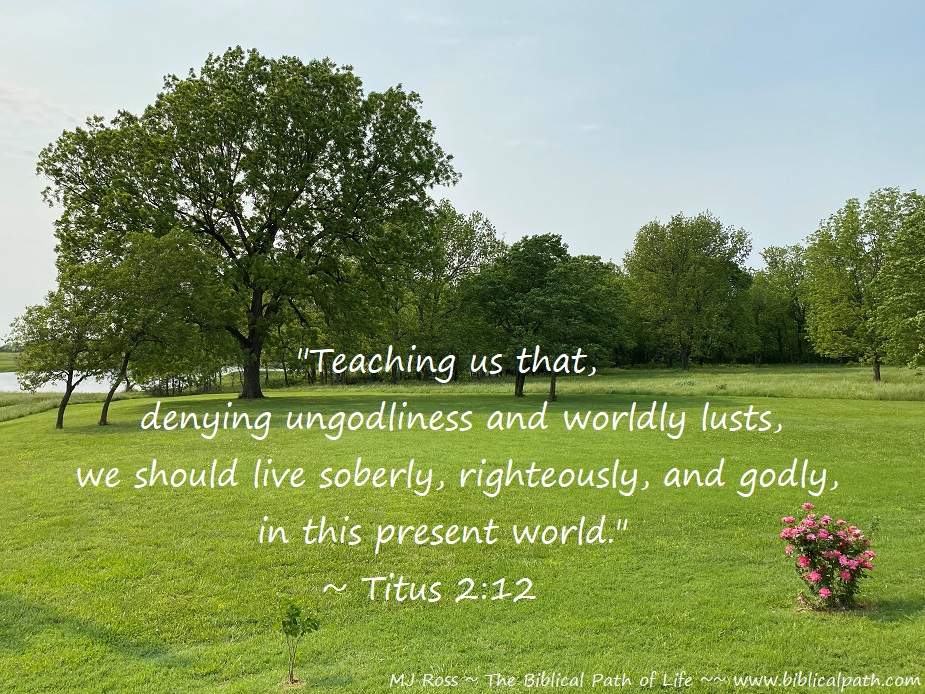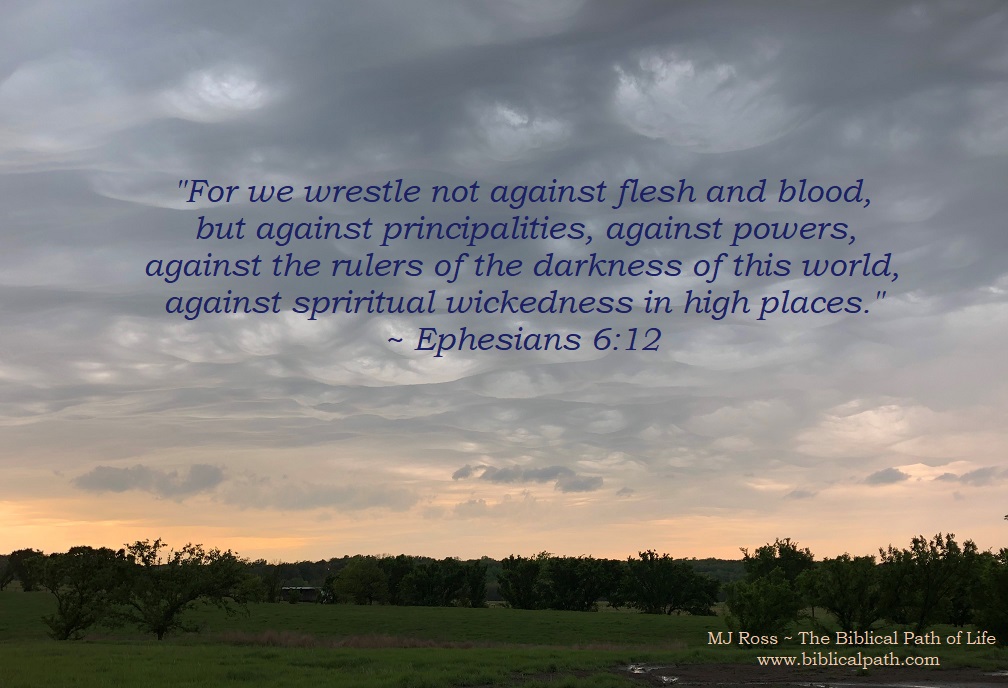
“Teaching us that, denying ungodliness and worldly lusts, we should live soberly, righteously, and godly, in this present world.”
Titus 2:12
Almost everyone remembers the conflicts between Esau and Jacob. There was a struggle between them even before they were born. “And the children struggled together within her …” (Genesis 25:22a). When Rebecca asked God why, read the reply. “And the LORD said unto her, Two nations are in thy womb, and two manner of people shall be separated from thy bowels; and the one people shall be stronger than the other people; and the elder shall serve the younger” (Genesis 25:23). This was the reason for the conflict. There where two peoples, or two nations, that were born to Isaac and Rebecca. Consider the following. Although they were twins, Esau was born first. They were about as opposite as twins could be. “And the boys grew: and Esau was a cunning hunter, a man of the field; and Jacob was a plain man, dwelling in tents” (Genesis 25:27). It was not long before Esau revealed his true nature. It was proven throughout his life; even whom he chose to marry (see Genesis 26:34-35). “Which were a grief of mind unto Isaac and to Rebekah” (Genesis 26:35).
One day, Esau came in from hunting, extremely hungry. Jacob was cooking some pottage (soup). Esau wanted this soup. “And Jacob said, Sell me this day thy birthright” Genesis 25:31). We need to understand what this “birthright” is. The word birthright means “the firstling of man or beast; abstractly primogeniture: – birthright, firstborn.” Primogeniture means “the state of being the firstborn child. The right of succession belonging to the firstborn child, especially the feudal rule by which the whole real estate of an intestate passed to the eldest son.” Knowing this, read what Esau’s reply was. “And Esau said, Behold, I am at the point to die: and what profit shall this birthright do to me?” (Genesis 25:32). Esau sold his birthright to Jacob – for a bowl of soup. Take note that he cared more for the temporary fulfillment of food for his stomach at that moment, more than a lasting heritage for him and his children. The Bible gives us a little insight here. “Then Jacob gave Esau bread and pottage of lentiles; and he did eat and drink, and rose up, and went his way: thus Esau despised his birthright” (Genesis 25:34). Despised means “to disesteem: – despise, disdain, contemn (contemptible), think to scorn, vile person.” Esau thought nothing of his birthright. Keep in mind that his grandfather, Abraham, had been given a promise of the Messiah who was to come (see Genesis 12:2-3; 22:18, John 8:56, Acts 3:25-26). The same Messiah promised to Adam and Eve in the garden (see Genesis 3:15). The promise would be fulfilled through either Esau or Jacob. From this incident, we should learn much about Esau. He was a carnal man. He thought nothing of the spiritual.
Later, we remember when Isaac is old and thinks he may die. He called in Esau, sending him to go prepare some venison for him, so that he could bestow upon Esau his blessing. Remember, we read in Genesis 25:23 that “… the elder shall serve the younger.” However, through deceit and trickery, Rebecca sent in Jacob to receive the blessing (read Genesis 27 to remember these events). Jacob received the blessing from his father, Isaac. “28. Therefore God give thee of the dew of heaven, and the fatness of the earth, and plenty of corn and wine: 29. Let people serve thee, and nations bow down to thee: be lord over thy brethren, and let thy mother’s sons bow down to thee: cursed be every one that curseth thee, and blessed be he that blesseth thee” (Genesis 27:28-29). One must remember the promises given to Abraham (see Genesis 12:2-3). These promises would pass on to Jacob (the younger son) and his descendants.
Esau had proven through his rejection of his birthright and rejecting of the things of God that he was not a spiritual man. He thought more about the present comforts (food, land, wealth) than of the things of God. Read some insight we have of Esau in the New Testament. “16. Lest there be any fornicator, or profane person, as Esau, who for one morsel of meat sold his birthright. 17. For ye know how that afterward, when he would have inherited the blessing, he was rejected: for he found no place of repentance, though he sought it carefully with tears” (Hebrews 12:16-17). He was a “fornicator” which relates to his rejection of spiritual things. Profane person means “profane, void of religion or piety, a person who lacks all relationship or affinity to God.” Understand how God sees Esau – one who had no relationship, or affinity, to Him. Esau never declared repentance (a change of his mind) for his choices in life, nor did he alter the course of his life to please God. He only wanted his father, Isaac, to “repent” (change his mind) in his decision to give the blessing to Jacob. Read what could have been if Esau had only sought after God and the things of God: “11. For the grace of God that bringeth salvation hath appeared to all men, 12. Teaching us that, denying ungodliness and worldly lusts, we should live soberly, righteously, and godly, in this present world” (Titus 2:11-12). Because of the choices that Esau made in his life, rejecting God and the things of God, we understand the following declaration: “As it is written, Jacob have I loved, but Esau have I hated” (Romans 9:13).
Esau had the choice.
Esau chose poorly.
Have you chosen to deny ungodliness and the things of this world, and instead to follow righteousness?








